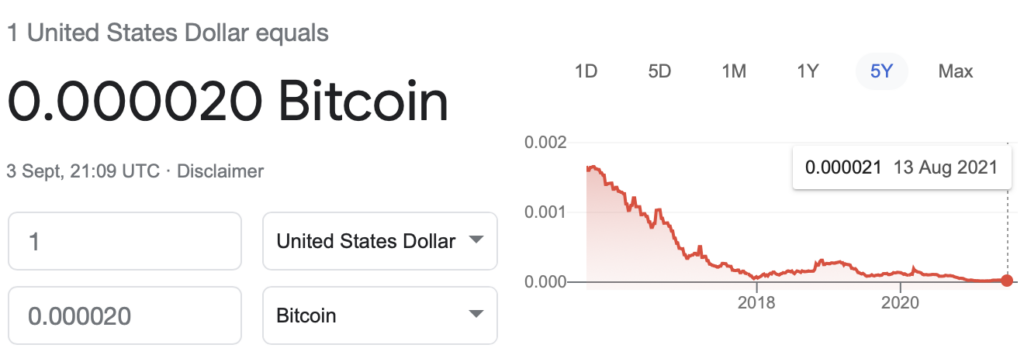An interesting article in the New Yorker caught our eye recently exploring how economic orthodoxy is being challenged. Specifically how the critique of non-stop economic growth, once a fringe position, is gaining widespread attention in the face of the climate crisis.
From our perspective much of the article gets it absolutely right, but it misses the elephant in the room, monetary policy. And by extension why adoption of cryptocurrencies like Bitcoin have been growing at such a rapid rate.

In an inflationary economy where money (we can equate this to the US dollar given its position as the global reserve currency) is being printed like it’s going out of fashion (more dollars have been printed in the last 2 years than since the Fed was created in December 1913) it is not possible to accurately price future environmental obligations. What do we mean by this?
Well, think about the use of a finite environmental resource like the Amazon rainforest, which performs many functions to maintain and support life as well as providing a material like lumber used for construction. If the price of money is being inflated the cost of lumber is much cheaper now than it will be next year. So it is rational to use as much lumber as possible now to minimise costs, and bring forward potentially sustainable future consumption of lumber as it will cost more at a later point.
This logic leads to a cycle of overconsumption because a rational economic actor is always better converting money into assets now, rather than deferring consumption and buying later. The assets are cheaper and it preserves the value of the money. A double win for the individual or company but a big collective loss for the environment and future generations.
And this is where the fixed monetary policies of Bitcoin and Cardano can help us, providing a fixed supply of monetary units, which in the long run can help us more accurately price future consumption and environmental impacts.
By removing the inflationary bias built into the current system we are rewarded for sensibly deferring consumption. We are no longer rewarded for effectively stealing environmental wealth from future generations.
And the growth? This will likely increasingly shift into the virtual realm (NFTs anyone), and for physical business processes will move towards circular economic activities which will be incentivised to make more efficient use of resources, rather than the use once and throw away model prevalent now.
A model is starting to come into focus where prosperity increases while reducing consumption of resources.

